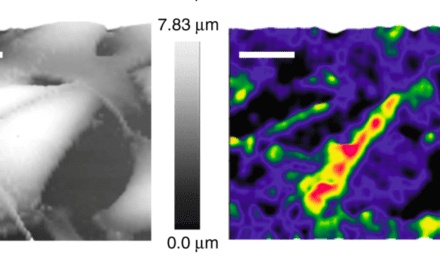Rosetta Genomics Ltd, Israel, which develops microRNA-based diagnostics and therapeutics, has signed a binding term sheet for $2.9 million to purchase Parkway Clinical Laboratories Inc, Bensalem, Pa, a privately owned CLIA-certified lab.
The deal consists of $1.9 million in cash and $1 million of Rosetta’s ordinary shares. An additional $300,000 will be payable after milestones are reached.
Parkway owns an emerging, national, CLIA-certified clinical reference lab with expected revenue of $3 million and marginal operating income in 2008.
"The acquisition of Parkway Clinical Laboratories is an important strategic addition for Rosetta Genomics, which we anticipate will enable us to expedite the commercialization of our first microRNA-based diagnostic tests," said Amir Avniel, Rosetta’s president and CEO. "The lab’s wide experience in diagnostic testing and regulatory compliance will provide us with strong commercial infrastructure that will complement our advanced R&D capabilities."
Rosetta plans to expedite development and validation of its microRNA-based diagnostic tests in the United States and worldwide. The move is a key piece of its commercialization and growth strategy, as ownership of the CLIA-certified lab should help control the commercialization of diagnostics—marketing, sales, and reimbursement strategy.
The 5,000-square-foot lab complements other CLIA-certified labs: Columbia University Medical Center’s high complexity molecular pathology laboratory, New York; and University of California Irvine School of Medicine’s CLIA lab, Irvine, Calif, which are expected to offer diagnostics based on Rosetta microRNA technology.
Raza Bokhari, MD, Parkway’s CEO, president, and chairman, would become Rosetta’s chief development officer, and some 32 Parkway employees would join the new company.
"We are excited to be joining Rosetta Genomics in developing groundbreaking microRNA-based diagnostics," Bokhari said. "I am confident that the expertise of our laboratory, the sophisticated talent pool available in the mid-Atlantic region, and abundant life-sciences opportunities present in the greater-Philadelphia area will have a strong and meaningful impact on Rosetta Genomics’ worldwide commercialization strategy."
Bokhari has experience in aggregating and accelerating multi-specialty pathology companies. In 2001, he took over Lakewood Pathology Associates, a struggling multi-specialty surgical pathology lab in Lakewood, NJ. As president and CEO, he helped grow the company’s revenue tenfold, its client base expanded to more than 25 states, and the company created more than100 new jobs in the region. Bokhari sold the company in 2006 to Waterstreet Healthcare Partners, a Chicago-based private equity fund.
In 2003, he acquired Parkway.
"This is a critical milestone in the path to commercializing Rosetta Genomics’ microRNA-based diagnostics," noted Ronen Tamir, Rosetta’s executive VP of marketing. "Parkway Clinical Laboratories’ expertise in diagnostic testing, reimbursement, and regulatory compliance, will provide us with the freedom we need to market and sell our microRNA-based tests in the U.S. and around the world. We expect the acquisition of this CLIA-certified lab to significantly streamline the development process of our wide microRNA-based diagnostics pipeline."
Rosetta’s first microRNA-based tests expected to enter development and validation at Parkway’s facility are:
• Squamous versus non-squamous non-small cell lung cancer: The test is
designed to differentiate squamous from non-squamous non-small-cell lung
cancer (NSCLC) using a single microRNA. The ability of physicians to
differentiate squamous from non-squamous NSCLC is an important treatment guide. Certain angiogenesis inhibitors for non-squamous NSCLC include a black-box warning about substantially higher rates of severe or fatal hemorrhage among patients
with squamous NSCLC histology compared with non-squamous NSCLC. Several other targeted drugs for NSCLC currently under development may require this sensitive differentiation.
• Mesothelioma versus adenocarcinoma: Differentiating between mesothelioma
and adenocarcinoma is critical for optimal therapy, but it is often difficult to differentiate. There is no objective, standardized test to aid pathologists in differentiating between the
many possible tumors in the lung and pleura. Based on several microRNA biomarkers, the test is designed to separate mesothelioma from adenocarcinoma tumors including lung adenocarcinoma and metastases to the lung or to the pleura.
• Cancer of Unknown Primary: In 3% to 5% of all new cancer patients,
clinicians cannot identify the origin of a patients’ tumor. This information is crucial for determining treatment type.
As demonstrated in a paper published by Rosetta and collaborators in the April issue of Nature Biotechnology, the company has developed a panel of microRNA biomarkers potentially able to identify approximately 30 cancer types. The test is designed to help clinicians identify the origin of tumors.
Rosetta’s integrative research platform combining bioinformatics and lab processes has led to the discovery of hundreds of biologically validated, novel human microRNAs. Building on its IP position and proprietary platform technologies, the company is working on applying the technologies toward developing of a range of microRNA-based diagnostic and therapeutic tools, focusing primarily on cancer and various women’s health indications.


